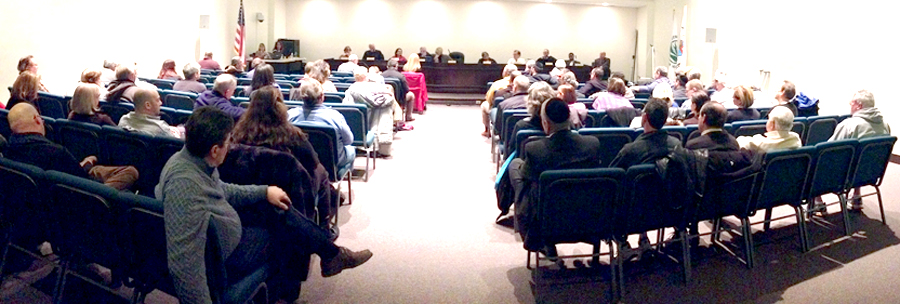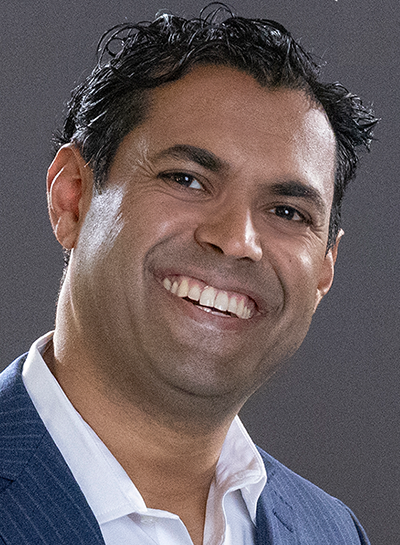
Shore sweeps Wave in the pool
February 16, 2013
Polar Plunge in Pier Village
February 17, 2013By Neil Schulman
Long Branch — The Zoning Board of Adjustment will continue hearing the application to build a 20,000 square foot synagogue in West End in March.
Since last June, the Board has been holding hearings on the issue. Chabad, a Jewish organization, wants to convert the former West End Theater on the corner of Brighton Avenue and adjoining building into a 200-seat synagogue with a multi-purpose room and classrooms for Hebrew school.
Because houses of worship are not a permitted use in this area, the Board would need to grant a variance for it to be built.
At Monday’s hearing, Thomas Hirsch, an attorney hired by those opposed to the proposal, grilled Richard Preiss, a planner hired by Chabad who has argued that a synagogue would still be a net benefit to the area, even if it does not fit the zoning plan.
Preiss says that houses of worship are considered “inherently beneficial” uses under the law.
He has also said that a well-maintained synagogue would improve the appearance of West End, replacing a “derelict site which currently contributes nothing to the vibrancy of Ocean Boulevard.” Preiss said that he also believes it would contribute to commerce in the neighborhood, as worshippers see the shops and goods available.
But Hirsch argued that Long Branch has rejected a house of worship in commercial zones before. In a case “Lighthouse Institute of Evangelism vs. Long Branch,” the courts ruled that a house of worship could be excluded from the city’s Redevelopment Zone.
The court noted there that the goals of that zone included “strengthening retail,” “increasing employment,” and encouraging a “vibrant” commercial community, Hirsch said.
Many of those phrases also appear in the city’s Master Plan, adopted in 2010, to describe what it wants in the West End neighborhood, Hirsch said. He said the plan calls for “quality business enterprises” that contribute to West End’s economic base.
“These are completely different circumstances,” Preiss responded. He said that the rules regarding a redevelopment zone are different from what a zoning board is supposed to consider.
Hirsch also questioned the idea that a synagogue would improve business in the community. It would attract people mostly on Saturdays, the Jewish Sabbath. According to the religious beliefs of Chabad, observant Jews should not spend money on Sabbath.
“They’re limited, are they not, to what they can do, on their religious tenets?” Hirsch asked.
Preiss said that not all the people who attend the synagogue were observant. In addition, those who refrained from spending on Saturday would see the stores and businesses available, and could come back later for commerce.
Preiss said that a house of worship would contribute less economically than a business, but would still be an overall positive.
But Hirsch said that Chabad has been operating as a synagogue for the past five to seven years in a smaller space just a few doors down from the proposed location, and there is no indication that it has been improving the local businesses.
Several times during the questioning, Hirsch said that Preiss wasn’t responding to what he had asked.
“I asked you a question, and you keep wanting to go stick to your prepared statements,” he said at one point.
At least one Board member is not sure that Preiss’ arguments that a temple would improve the neighborhood are valid, or that it is high on the list of priorities for the “public good.”
“It seems to me we’re talking of such a small, specific part of the public… where the benefit was,” said Garry Elliott. Approving this application would remove potential retail and housing (several apartments are above the stores next to the theater), and would take the building off the tax roll.
“I’m just not sure I see the benefit outweighing,” he said.
Board Chair Terry Janeczek noted that even “inherently beneficial” uses are not automatically allowed. The NJ Supreme Court, for example, ruled against Seton Hall’s proposed expansion, even though a school is considered inherently beneficial, saying it would harm the town of South Orange’s Master Plan.
The hearing will continue on March 11, 7 p.m., at City Hall.





